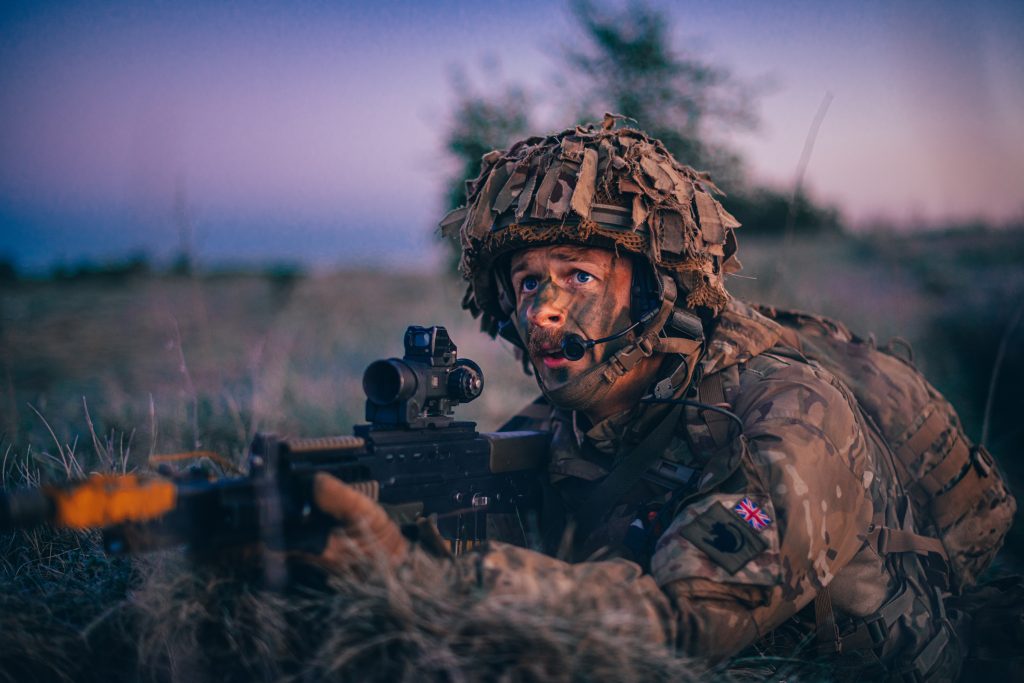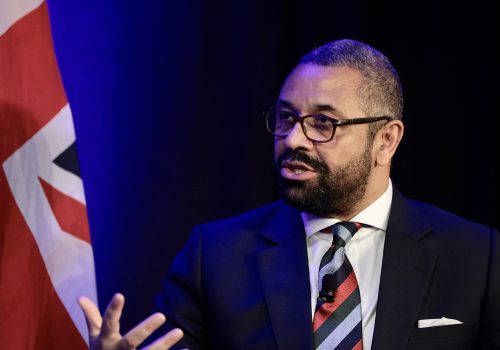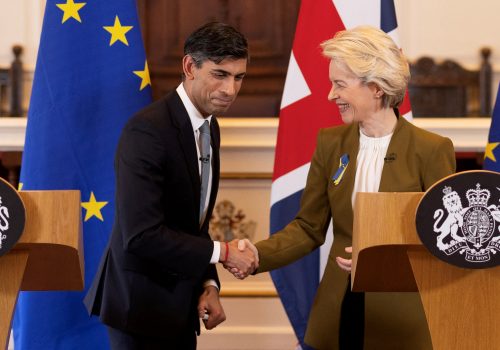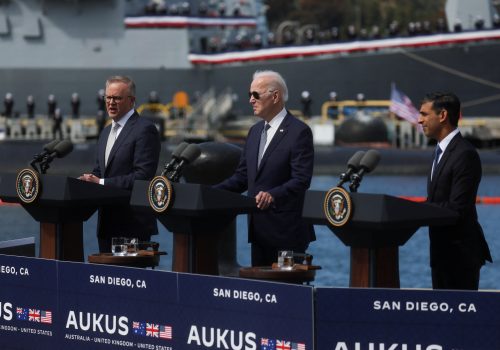“I have never heard anyone advocate conscription for the sake of conscription.”
So were the words offered by Anthony Eden, former Foreign Secretary and future Prime Minister, during a 1948 parliamentary debate on the National Service Act, the United Kingdom’s last great peacetime conscription effort. From the Act’s passage until 1963, some two million people found themselves summoned into the service of the nation’s armed forces.
The concept was a novel one. As Eden recognized, the British Army and its fellow services had been volunteer forces throughout most of their history. It was only when faced with the necessities of World War I and World War II, together with the need to service imperial commitments post-1945, that the United Kingdom chose to follow many of its continental neighbors and institute a uniquely British levée en masse. When the army had previously undergone significant reform, such as during the Edwardian era under Secretary of State for War Richard Haldane, or when theorists such as Julian Corbett or Basil Liddell-Hart sought to define a “British way of war,” conscription was frequently rejected as either constitutionally, socially, or economically unviable. The British Army, which I currently am privileged to command as chief of the general staff, relied upon the spirit of the volunteer.
Yet our volunteers’ motives for service were often far from noble. Many who “took the King’s shilling” during the eighteenth and nineteenth centuries were often avoiding unemployment or incarceration. The reputation of the British Army and its soldiers during peacetime was poor, eternally encapsulated in Rudyard Kipling’s 1890 poem “Tommy”: “O it’s Tommy this, an’ Tommy that, an’ ‘Tommy, go away’ / But it’s ‘Thank you, Mister Atkins,’ when the band begins to play.”
Thankfully, times have changed; we no longer enlist our workforce to the beat of the recruiting sergeant’s drum and the promise of warm watery beer outside of a town alehouse. I am also relieved to say that the British Army now enjoys a much more positive and healthier relationship with the population whom we serve.
But new challenges emerge. As armies transform to meet the exponential rate of technological change and mobilizing threats that have defined the twenty-first century, the requirements we ask of our volunteers are evolving.
War remains a clash of wills—a fundamentally human endeavor.
First, as Kipling’s jaded hero recognized and as Russian President Vladimir Putin’s illegal invasion of Ukraine has demonstrated, land wars are still ultimately won by soldiers. Over the last year, warfare in the trenches of Bakhmut and the plains around Kharkiv has demonstrated the significance of determined individuals who trust one another in battle. War remains a clash of wills—a fundamentally human endeavor. We therefore need those who can meet its enduring nature; those who have the drive, the physical and mental endurance, and the flexibility to flourish when confronted by friction and chaos. And, if we are to continue to meet our purpose—protecting the nation by being ready to fight and win wars on land—we require soldiers capable of maintaining the values, standards, and discipline needed to avoid becoming a moral hazard on the battlefield.
Second, our volunteers must be capable of adapting to war’s changing character, for twenty-first century conflict will ask more of our people. Soldiers will need greater cognitive ability and higher levels of skill to operate more complex systems and platforms. They will be required to maintain human agency amid advances in human-machine teaming, artificial intelligence, and autonomy on the battlefield to uphold ethical standards and ensure their actions are both legal and accountable. And they will do all of this under constant media scrutiny and in the full gaze of the court of public opinion.
We have never asked so much of our soldiers at any other time in our army’s history and, like many of our allies and partners, we are doing so while facing a highly competitive labor market. We therefore need to identify and attract talent early and ensure we provide the qualifications, lifestyle, and job satisfaction to retain it. Armies must now look beyond their traditional recruiting demographics, consider the expectations of Generation Z and its successors, and recognize that the necessity for a more skilled workforce could lead to higher training and retention costs. The British Army has already started this process: through our first-ever Army People Plan and Programme CASTLE initiative, we are updating the career structures and practices of the industrial era, many recognizable to the national service members of the 1960s, and making them fit for the digital age.
We should also not forget what the army gives back to the society from which it recruits. For example, many of the entrants to our Army Foundation College in Harrogate have previously been excluded from school. On completion, almost all students leave with General Certificate of Secondary Education equivalents in English and math. The British Army is consistently the top employer of apprentices in the United Kingdom. And in a country where it can take five generations to move from the bottom to the middle of the income curve, a career in the British Army offers the possibility to achieve it in a single generation. The British Army remains a powerful tool of social mobility; we nurture our volunteers into the best of British society.
Unless threatened by such circumstances as those faced by the nation in 1916 or 1939, it is unlikely that the United Kingdom will again adopt a policy of conscription; we will continue to rely on the spirit of our volunteers. And as we move deeper into the 2020s, the British Army will do so against the backdrop of an ever-more tumultuous world, a growing battle for national talent, and continuing societal change.
It is a tough prospect. But it is one that I know our current volunteers, and those who follow them, are more than capable of meeting.
General Patrick Sanders is chief of general staff of the British Army.
Further reading
Wed, May 10, 2023
Ukraine’s friends must show ‘we’ve got the grit’ in supporting its fight, says UK foreign secretary
New Atlanticist By Katherine Golden
James Cleverly argued at an Atlantic Council Front Page event that if the West is saving its stockpiles in its "military cupboard" for a rainy day, "this is the rainy day."
Fri, Apr 28, 2023
How the EU and UK can start to collaborate in a post-Brexit world
New Atlanticist By Jörn Fleck, Ben Judah
As EU ambassadors to London gather to discuss the future of the relationship, here are six ambitious but realistic ideas for cooperation.
Tue, Mar 14, 2023
What’s next for the US-UK-Australia submarine partnership?
New Atlanticist By
Dive into the details of the AUKUS submarine partnership just announced in San Diego by US President Joe Biden, UK Prime Minister Rishi Sunak, and Australian Prime Minister Anthony Albanese.
Image: A British Soldier, assigned to the Legion Troop, C Squadron, also known as the Light Dragoons, holds a security posture during a reconnaissance exercise in support of NATO's enhanced Forward Presence Battle Group-Poland in Bemowo Piskie, Poland, May 15, 2020.



